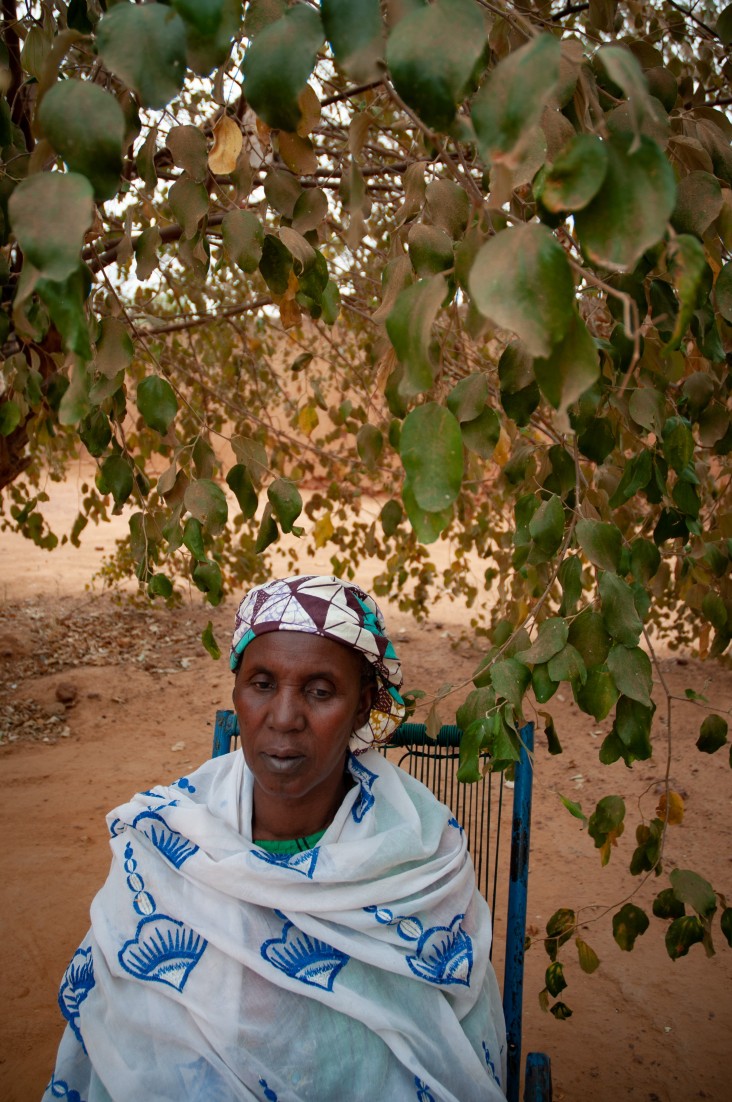Speeches Shim

Fatoumata Minta and her two children fled from their home after armed men attacked their village and burned it to the ground. They have been living at a camp for displaced people in Mopti, Mali, ever since. CRS, in partnership with the United States Agency for International Development, provided them with cooking supplies and cash, which Fatoumata used to purchase food, buckets and soap.
Fatoumata Minta had just put her two children to sleep when the attackers came. She grabbed them from their beds and fled into the bush while her husband, Soumaila, stayed behind to help defend their village near Bankass, Mali. It was the last time she ever saw him.
The March 2019 attack left four villagers dead. Two others, including Soumaila, were kidnapped. An acquaintance from a neighboring village saw him being taken away on the back of a motorcycle blindfolded and bound.
Fatoumata and more than 100 other people from her village have spent the last year since the attack living at a site for displaced people some 100 miles away in the town of Mopti.
Violence from armed militias has forced 3.5 million people throughout Africa’s Sahel from their homes, including more than 200,000 in Mali alone. In addition to deadly attacks, there are reports of food supplies being burned and animals stolen or slaughtered.
These conflicts stem, in part, from tensions between farmers and herders—chronic drought has diminished fertile land, leaving communities with fewer sources of income. Meanwhile factions, including ISIS and Al Qaeda, continue to prey on the population’s economic desperation and intercommunal grievances.
As seasonal temperatures rise, the violence has escalated. In Mali, fatalities have increased each year since the crisis began in 2012. Central Mali saw a record 456 documented killings in 2019 alone.
Support from the U.S. Agency for International Development’s (USAID) has played a transformative role in improving quality of life. Fatoumata says a grant from the USAID via Catholic Relief Services (CRS) Mali, allowed her to receive soap, food, buckets, cooking pots and to buy some medicine. The funds have even allowed her to seek healthcare.
“My heart, my back, my head—everything hurts,” Fatoumata says between tears. “I cannot sleep at night or during the day. When I was with my husband in the village, I did not have these problems.”
“I miss my husband. This does not feel right,” she says. The things that give her hope are knowing that she and her children are safe, and that people who care are willing to help in her time of need.

Comment
Make a general inquiry or suggest an improvement.